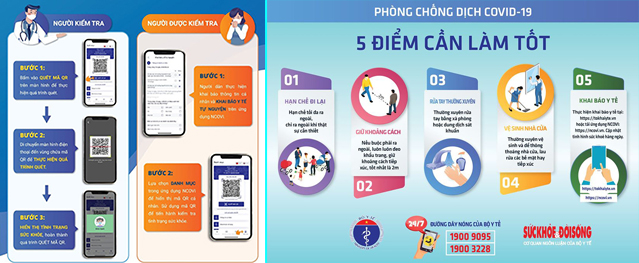
Viet Nam's Prime Minister Shares Five Lessons Learned from COVID-19, Highlights Importance of Communication in Pandemic
Viet Nam's Prime Minister Nguyen Xuan Phuc delivered a report on how the coronavirus disease (COVID-19) was contained and managed in the country, and solutions to restart the economy, at the opening ceremony of the country’s 14th National Assembly’s 9th working session on 20 May 2020.
Viet Nam lifted its social isolation measures on 22 April 2020 with gatherings still limited and face masks still mandatory. Schools and businesses have reopened on 2 May 2020. The country is being lauded for its successful “low-cost model” in containing the outbreak.
Prime Minister Phuc’s speech discussed the severity of COVID-19 pandemic in Viet Nam and the approach the Government took to overcome it. He highlighted lessons they have learned in overcoming the pandemic. These are summarized below:
- The importance of right, drastic, and timely leadership together with determined and strong action of the whole political system, joined by close and effective cooperation among sectors, levels, localities and competent agencies in realizing adopted measures;
- Inspiring solidarity and kindness among all citizens and the business community to join hands;
- Building an independent and self-reliant economy and promoting the role of science technology and innovation, as well as participation of all sectors and levels, especially local authorities and people in curbing the pandemic and rebooting the economy, while fostering an international integration process;
- Doing well in communication work to help the public get the right information; and
- Staying active in suggesting initiatives and participating responsibly in the common efforts of the international community in prevention and control of the pandemic in order to contribute to accelerating the international integration process and improving the nation’s global position and prestige.
Emphasizing the importance of communication during the pandemic, the Prime Minister told the Assembly that ‘pandemic communication’ helped citizens get the right information in a transparent and timely manner. It contributed to consolidating social consensus and improving public awareness about COVID-19 prevention and control.
He also shared that digital apps and platforms were deployed to help citizens declare their health status and assisted the health sector in tracking suspected cases. Top doctors also used these digital platforms to provide useful medical instructions to grassroots-level doctors treating COVID-19 patients. Read the full report.
Strengthening Risk Communication: A Key Focus of the GMS Health Security Project
Risk communication is one of the eight focus areas of the Asia Pacific Strategy for Emerging Diseases (APSED)2010 the common strategic framework for World Health Organization (WHO) member countries of the Asia Pacific region. Risk communication helps inform decision making, encourage positive behavioral change, and maintain public trust.
A key output of the Greater Mekong Subregion (GMS) Health Security Project is to increase national disease surveillance and outbreak response systems in the subregion. It is working on strengthening APSED focus areas (1, 2, 3, 7, 8), including risk communication.
On September 2019, risk communication specialists from member countries of the GMS gathered together for a workshop on Strengthening Risk Communications for Health Emergencies in Xieng Kouang, Lao People’s Democratic Republic. They generated ideas on communicating and coordinating during health emergencies on a regional scale.
